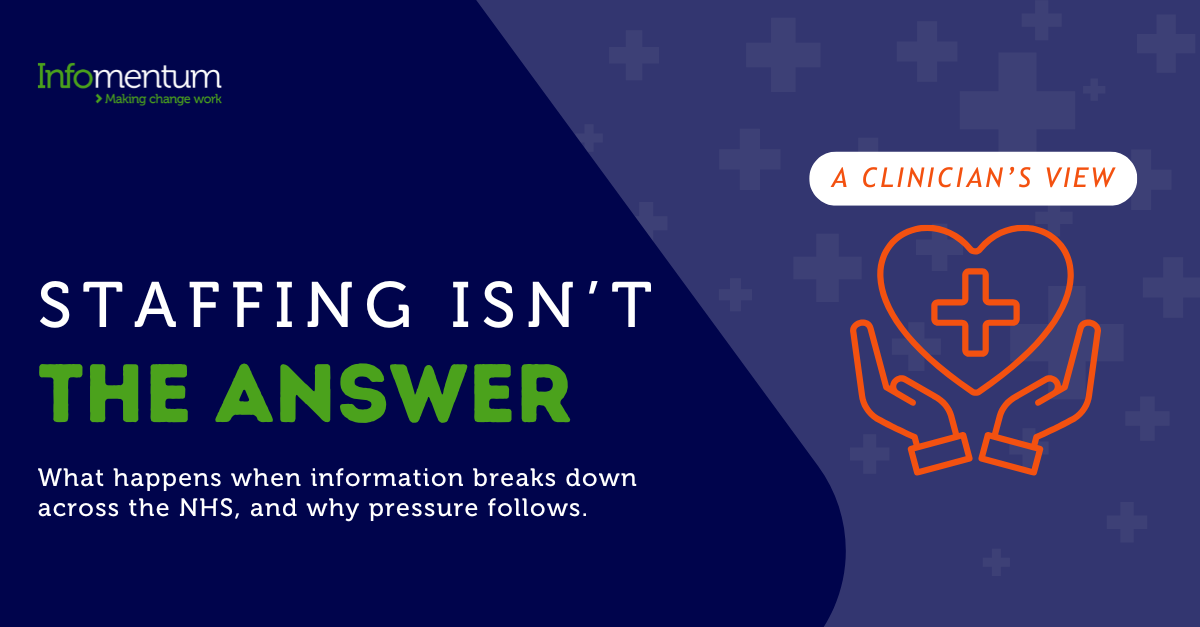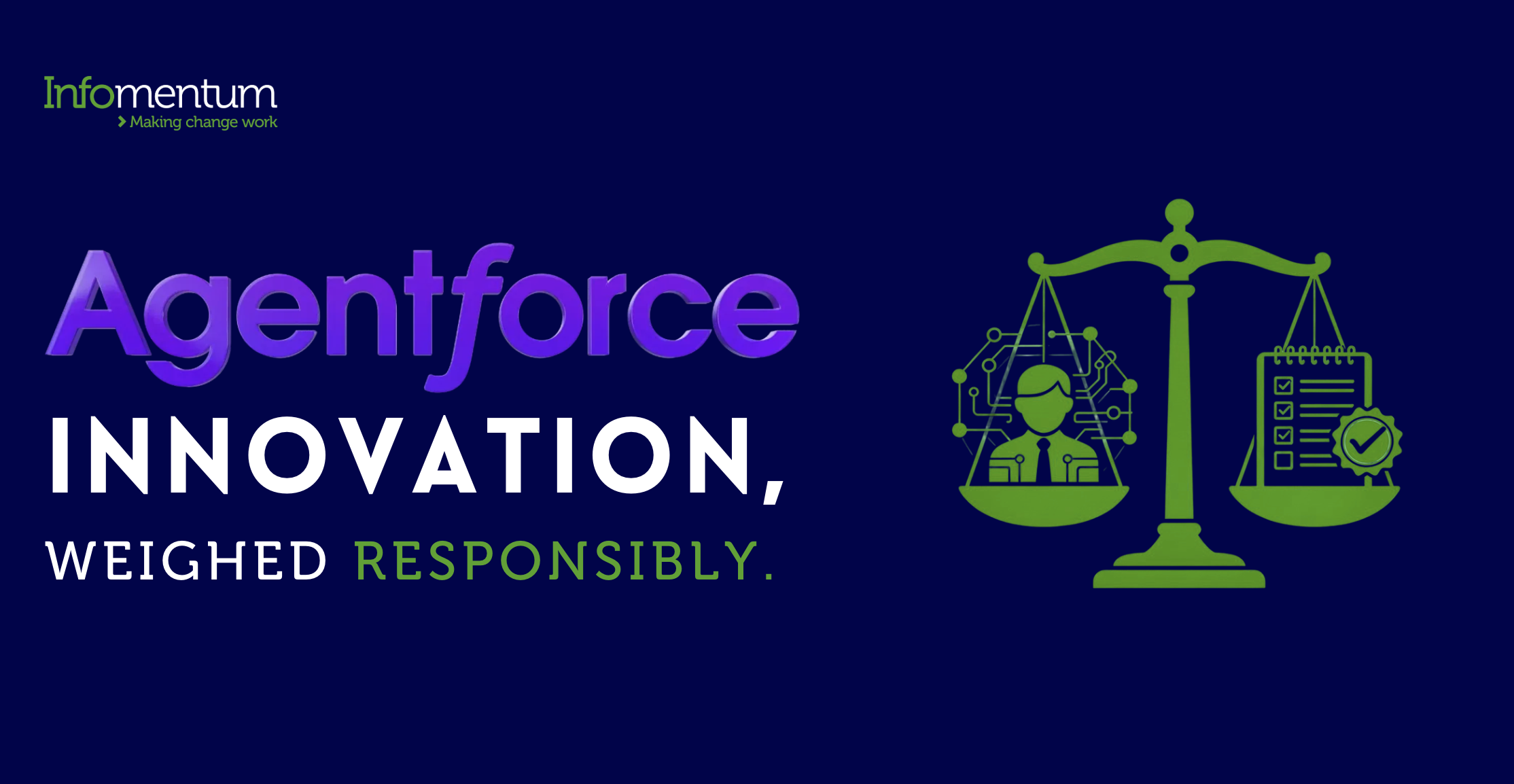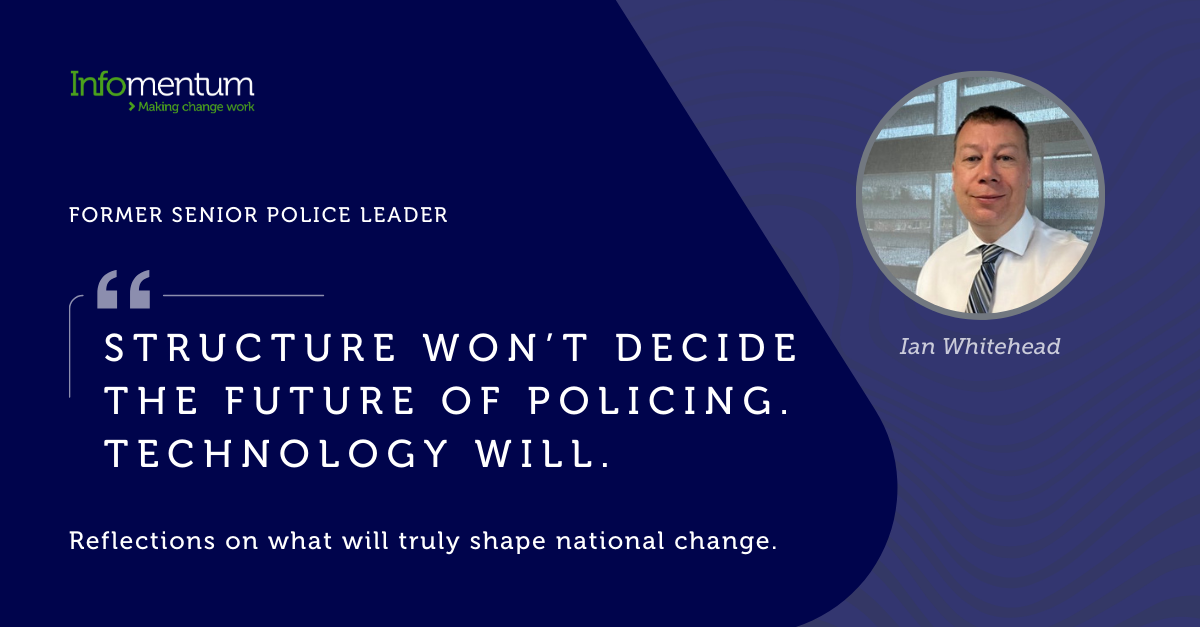In my most recent article about embracing disruptor technology, I touched on how trust is central to policing, and equally essential to every technology partnership that supports it. The same principle applies here. Without trust, even the most ambitious transformation efforts are unlikely to succeed.
After 30 years in policing and now working with technology teams, I’ve seen both sides. Projects falter when trust is missing, and transformation flourishes when it’s built from the start. Technology is no longer just a support service; it's a core enabler of modern policing. It makes the people behind it as important as the systems themselves. Choosing a vendor isn’t simply about software, it’s about forming a partnership that can either accelerate progress or introduce risk and cost.
In today’s climate, where budgets are stretched and every investment must prove its value, trust is the foundation of lasting success. This article looks at why trust often breaks down between policing and technology suppliers, how the right partnerships create better outcomes, and the qualities to look for when selecting a vendor.
Why trust breaks down
Many in policing have had poor experiences with IT suppliers. Long implementation cycles, rising costs, over-promised capabilities, and solutions that don’t work as intended. It’s little wonder that decision-makers are wary. In some cases, there’s an ingrained scepticism about whether tech vendors really understand policing at all - or whether they’re simply reshaping a generic solution to fit a complex and unique environment.
This disconnect is often compounded by how public sector procurement has traditionally worked: transactional relationships, rigid specifications, and a tendency to favour size and familiarity over agility and understanding. The result? A marketplace where many vendors operate on policing, not with it.
In such an environment, trust erodes. Vendors are treated with caution. Change is resisted. And the potential for digital transformation is lost before it even begins.
But it doesn’t have to be that way.
The power of the right partnership
Some of the most successful digital programmes I’ve seen both during my policing career and since didn’t start with a spec. They started with a relationship. A shared understanding of what the organisation was trying to achieve, what barriers stood in the way, and how technology could help overcome them.
In these partnerships, vendors act less like external suppliers and more like embedded members of the team. They bring not just technical skills, but sector expertise, empathy, and a deep investment in outcomes. They are honest about what's possible and work collaboratively to navigate complexity, not avoid it.
The best partners don’t just deliver software. They help you build capability, confidence, and momentum. They don’t try to ‘own’ your problem - they help you solve it, together.
Building trust with the right partners
So what does a trust-based technology partnership look like in practice? In my view, there are five essential characteristics:
1. Sector understanding, not just sector experience
Policing isn’t like other industries. Its mission, culture, and risk profile demand a different mindset. Partners who understand this - who’ve worked in the sector, or invested real time learning its pressures and politics - build trust faster. They don’t just sell features; they solve real, operational problems.
At Infomentum, we’ve deliberately built a team that blends deep technology expertise with first-hand public service knowledge. That context matters, and it’s how we know when to challenge and when to support.
2. Transparency over salesmanship
Trust grows in environments of honesty. That means being open about what can and can’t be done, how long things will take, and what the potential risks or trade-offs are. It also means being willing to walk away from opportunities where the fit isn’t right - something many large suppliers struggle to do.
In the projects I’ve been involved in, the most trusted vendors were never the ones who made the biggest promises. They were the ones who gave the clearest, most realistic picture of what was involved. That’s how confidence is built. Not by selling dreams, but by delivering reality.
3. Collaboration, not control
Police forces are not passive recipients of technology. They are co-creators of it. A strong partner enables and empowers, bringing people into the process early and often. This includes frontline users, who are too often left out of digital conversations, despite being closest to the pain points.
Good vendors don’t just run discovery sessions; they listen. They don’t just train staff; they upskill them. They create a sense of ownership across the organisation, which is critical to adoption and long-term impact.
4. Adaptability in the face of change
Public sector priorities shift. Budgets fluctuate. Legislation evolves. The right partner doesn’t just tolerate change - they build for it. Agile delivery methods, flexible platforms, and responsive support models are essential in today’s environment.
One of the reasons I’ve found Salesforce to be such a strong foundation for transformation in policing is its flexibility. Their technology, as well as their overall approach can evolve with the force, integrating with other systems, surfacing data in new ways, and scaling as demands change. But again, the platform is only half the story - it’s the people and processes around it that determine its success.
5. Shared purpose
Perhaps most importantly, great partnerships are grounded in a shared commitment to public good. Technology partners who see their work as mission-driven, who care about outcomes, not just outputs, are more likely to go the extra mile when it matters.
That sense of shared purpose is what drew me to Infomentum after leaving the police service. It’s what I look for in our partners. And it’s what I believe the public sector should demand as standard.
Final reflections
Technology will never replace good leadership, sound judgment, or community trust. But it can enable all of those things - if it’s deployed well, by the right people, for the right reasons.
As policing and the wider public sector continue to evolve, the question is no longer whether technology will play a central role - it’s whether we’ll choose partners who truly support us in that journey.
The stakes are high. If we get it right, we won’t just digitise existing systems. We’ll build new ways of working that are smarter, faster, and more sustainable. We’ll unlock insight, free up capacity, and ultimately serve the public better.
But getting it right starts with trust. And trust starts with choosing the right people to walk alongside you.







